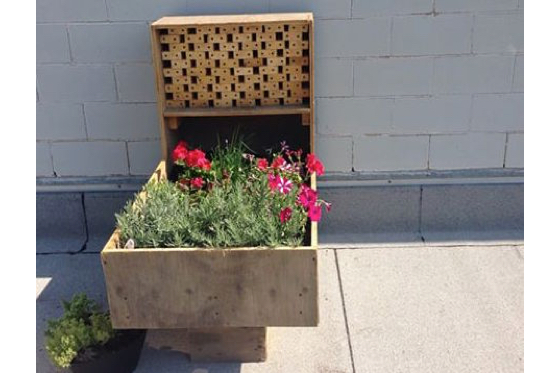Fairmont Hotels & Resorts and the nonprofit Pollinator Partnership are taking the hotel concept to an unlikely guest: wild mason bees.
The bees have ten “hotels” to visit at Fairmont hotels in the United States. It’s an attempt to stem habitat loss for the pollinators, a leading cause for the decline in wild bee populations, which are responsible for the pollination of one-third of the food produced in the U.S.
“Fairmont is the industry leader when it comes to supporting honeybee health and has been leading this charge over the decade. Expanding our focus to wild mason bees and their need for habitat is a natural evolution of our bee programming,” said Jane Mackie, vice president, Fairmont Hotels & Resorts. “Wild bees are incredibly efficient pollinators and we rely on them for 80% of the food we eat. Our hope is that these 10 bee hotels become the first of many that are built by businesses and Americans across the country.”

The hotels’ Bee Sustainable initiative aims to improve the health and conservation of bee species globally, and has built 40 apiaries and pollinator bee hotels at properties around the world.
The Fairmont bee hotels were built by engineers in consultation with Pollinator Partnership, the largest not-for-profit organization dedicated exclusively to the protection and promotion of pollinators and their ecosystems.
Designs incorporate reused materials and were inspired by the local surroundings, using, for instance, a wine barrel at the Fairmont Sonoma Mission Inn & Spa and a design incorporating the Washington monument at the Fairmont in D.C.
The hotel company is also selling some of the pre-made bee hotels starting in July. Chefs at participating hotels are also incorporating menu items with ingredients that rely on bees for pollination, such as tomatoes and eggplants.
